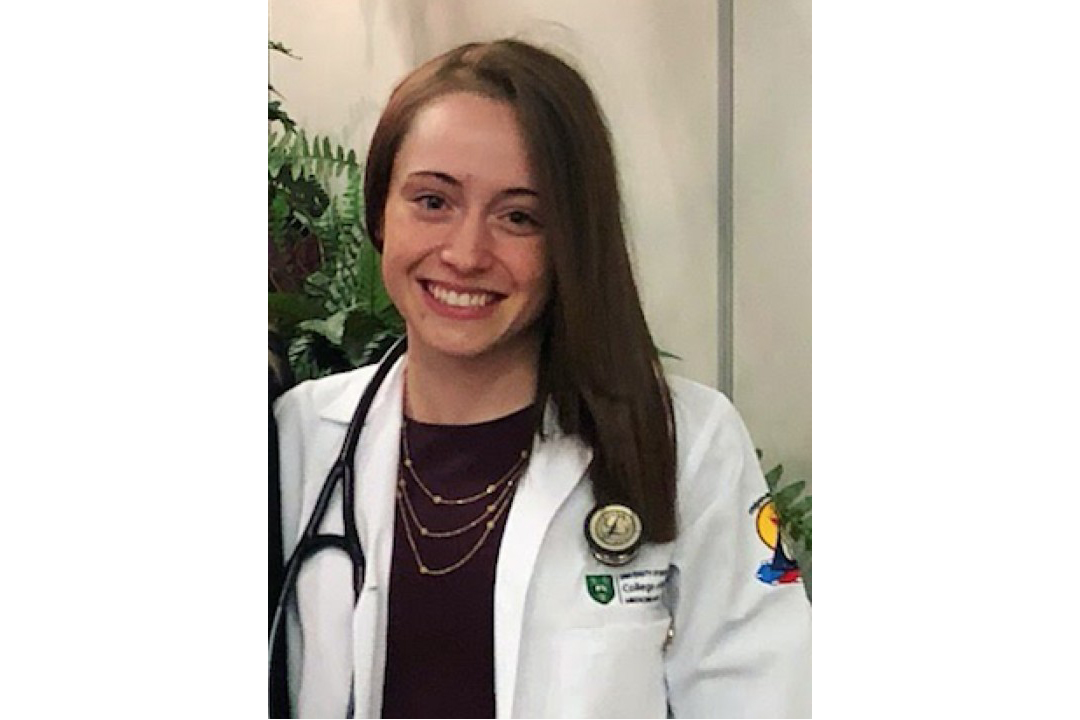
USask unites: Medical students connecting with isolated seniors
Since the first cases of COVID-19 were announced in the province, members of the USask community have come together to support one another in these uncertain times.<br/><br/>
Extraordinary circumstances have brought out extraordinary responses from members of our USask community. From frontline health-care workers to researchers looking for a solution to this global health threat, there are so many stories about people are working to make our home communities safer and healthy. Here are a few of the inspiring stories of our students, staff, faculty and alumni.
Thanks to a new national program, medical students with the USask College of Medicine are connecting with isolated seniors and hospital patients during the COVID-19 pandemic.
Madeline Parker, a third-year medical student at USask, is participating in the Student Senior Isolation Prevention Partnership (SSIPP), which connects medical students with isolated seniors for weekly phone calls.
“Seniors are already at risk for loneliness, but that’s especially amplified with social distancing, so our main goal is really to provide company (for) people who may not be receiving much interaction otherwise,” Parker said in an interview with the Regina Leader-Post.
“A lot of us miss interacting with patients right now, so it’s helpful for us to have that interaction as well.”
The program began at the University of Toronto, with individual chapters being opened at more than a dozen universities across Canada. While the USask chapter was only established a couple of weeks ago, more than 40 students have already volunteered their time to be connected with a senior.
“The evidence surrounding the link between isolation and depression and mental health outcomes is there, and I think our main worry is that this already vulnerable group—seniors—is going to be at further risk,” said Parker.
“They’re a group that maybe don’t have the social connections that others do.”
Read more on this program at the Leader-Post.
Share your stories with us: We are collecting the stories of resilience and good spirit from our USask community. Please send story ideas and photos to news@usask.ca.
As a community it is critical that we support each other and remain respectful during what is a difficult time for all of us. Please follow all guidelines and take all precautions to prevent the further spread of COVID-19 in our community.
How you can help our students during the COVID-19 pandemic: https://alumni.usask.ca/news/2020/covid-19-how-you-can-help-our-students.php
For the latest developments and information about the University of Saskatchewan's response to COVID-19, please go to www.usask.ca/updates.
The University of Saskatchewan is undertaking critical research and contributing to global efforts to combat COVID-19. The University of Saskatchewan's Vaccine and Infectious Disease Organization (VIDO-InterVac) is a world leader in developing vaccines and technologies to combat infectious diseases. Your support of the COVID-19 Research Fund supports the increased efforts of researchers at the University of Saskatchewan to develop vaccines and treatments for COVID-19. Donate now.
Article re-posted on .
View original article.
